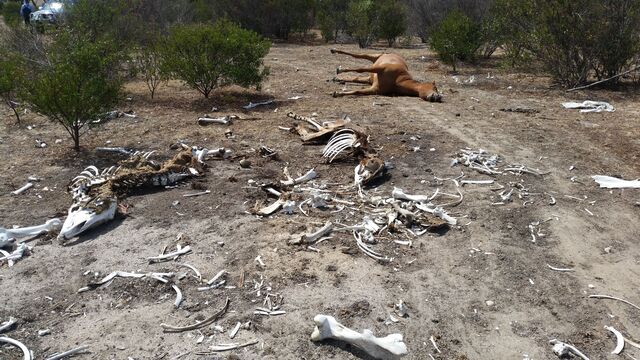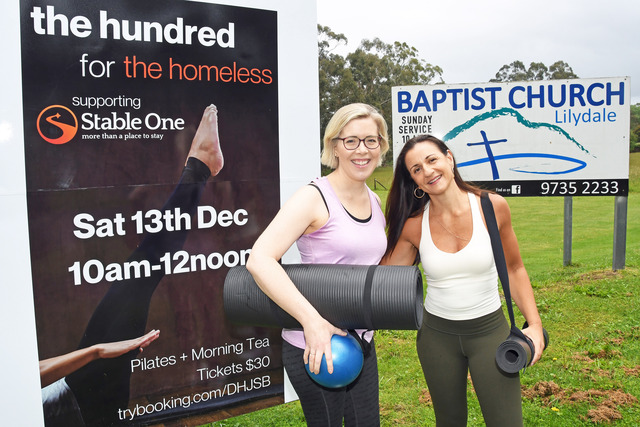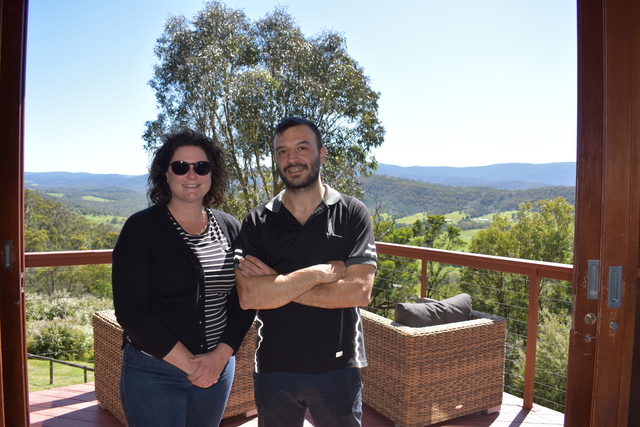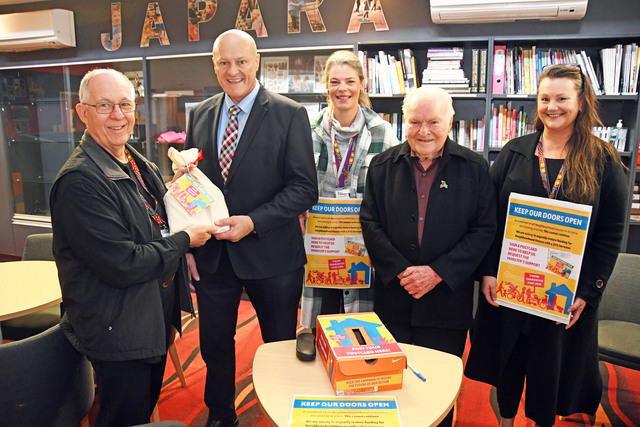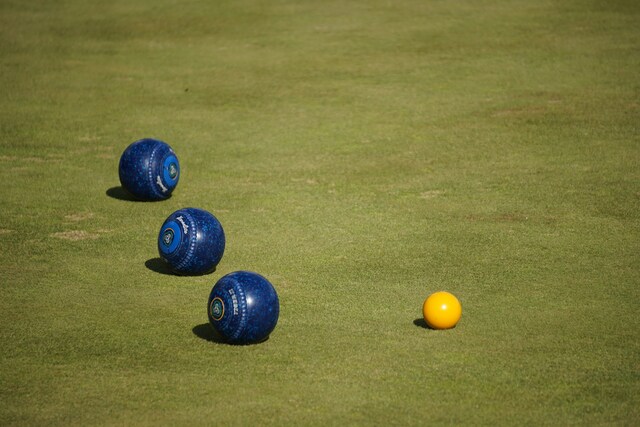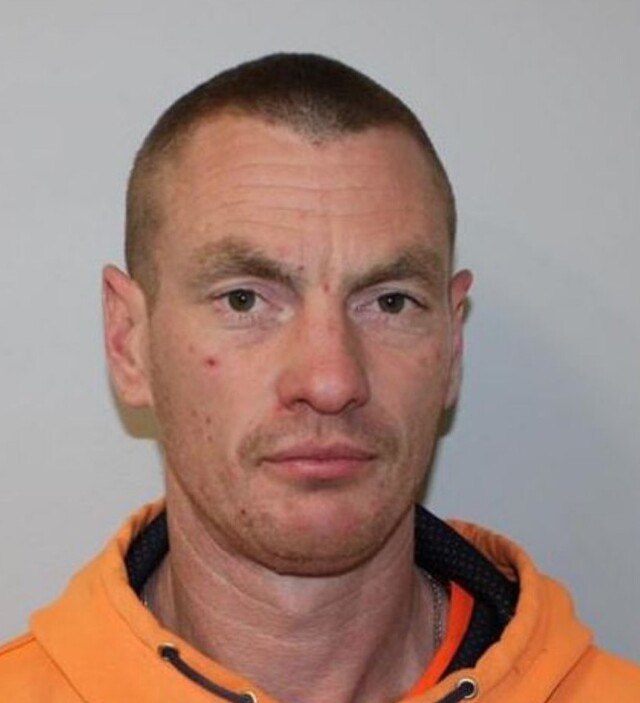RSPCA Victoria reported a surge of 800 horse-related animal cruelty reports as some owners failed to provide enough food amid an unusually dry 12 month period.
A report from the Bureau of Meteorology (BoM) showed severe rainfall deficiencies in the Yarra Ranges and in the south east areas in the past 12 months, which had caused available feed to become increasingly scarce.
RSPCA Victoria chief inspector Michelle Green said this was why the number of horses reported had skyrocketed and had strained the RSPCA’s resources as a result.
“This financial year alone we’ve seen a 53% increase in the number of horses involved in animal cruelty reports.”
“We have already taken in 183 horses, with more than 60 horses still in our care, with the majority at various agistments across the state due to the limited capacity at our shelter,” Ms Green said.
But Upper Yarra Pony Club district commissioner Anita Prowse said not all these reports were due to neglectful and cruel owners – the cost of living meant some owners couldn’t afford to feed their horses.
“There’s people who genuinely know that they can’t afford their horse, so they surrender them and do the right thing, but then you also get the horrible people who know what they’re doing is wrong but they keep doing it anyway,” Ms Prowse said.
The “horrible people”, Ms Prowse said, are the ones RSPCA’s inspectors – those responsible for protecting animals from cruelty – should target.
But a lack of legal authority, funding and resources for the RSPCA meant culprits often got away with neglecting their horses.
“Adding to the challenge of investigations is people expecting immediate seizure of animals which is not always an option, whether it be for the animal’s own health, or because despite the conditions of the animals, under the current legislation there is no legal basis for us to seize,” Ms Green said.
But Ms Prowse claimed RSPCA inspectors overlooked the actual animal abusing culprits and targeted those whose horses didn’t look “a million bucks” even if the owner was providing appropriate care.
“They’re just giving the wrong people a hard time, and that’s where they get a bad name,” Ms Prowse said.
According to a media release on RSPCA Victoria website, most animal cruelty cases investigated by RSPCA inspectors involved helping owners meet their horse’s needs and providing education.
“We understand it can be distressing to have an animal cruelty report investigated; however, our Inspectors focus is always on the wellbeing of the animals and, in the majority of cases, helping animal owners meet their pet’s needs.”
With only 28 inspectors to investigate more than 10,000 cruelty reports across the state, the RSPCA’s enforcement arm is severely limited and relies on community donations for it to run.
The RSPCA have called upon the government to increase its annual funding, as the $2.3 million directed toward inspectorate costs only covered 21 per cent of the $10.8 million forecast for this financial year.
Then there’s the well intentioned yet financially limited horse owners who make up the rest of the animal cruelty cases.
According to Ms Prowse, the price of hay had already risen from $120 at the start of the year to $200, and she predicted the price to rise another $150 by August if the dry spell continued.
Luckily, the BoM’s climate outlook for June to August anticipated that rainfall was likely to be above average.
The State Government’s On-Farm Drought Infrastructure Grant Program financially assists farmers struggling with drought, however the Yarra Ranges isn’t included in the eligible municipalities.
These financial constraints, alongside the controversial Emergency Services and Volunteer Fund’s (ESVF) 150 per cent rate hikes for farmers, have squeezed what’s left of horse owner’s finances.
Despite this, Ms Prowse believed that horse owners who only buy “fancy” pellets advertised by influencers don’t get to use financial constraints as an excuse for not being able to feed their horses.
“[Horse owners] need to be exploring more options. They’re not realising that everything’s not going to be perfect and your feeding regime might have to change a lot, but if it’s going to keep your horse healthier and in good condition over this period of time, well you’ve got to be adaptable to those kinds of things.”
“Obviously within reason, you don’t want to be feeding them things that are going to be harmful to them. What I mean is there are a lot of options out there that people aren’t realising.”
She also pushed for horse owners to approach other cases of horse neglect with more empathy rather than immediately condemning owners if their horses looked unhealthy.
“Like I said – not everybody is doing this. You don’t want people to have a really bad name because they’re struggling now. You want them to be able to reach out to people and look for answers rather than people condemning them all the time.”
Since the dry spell in the Yarra Ranges hasn’t been as bad as other areas such as Gippsland or South Australia, Ms Prowse said horse owners had to have exhausted all possible ways to feed their horses before they could blame their finances.
She pointed to resources such as Agriculture Victoria’s land and pasture management page, which offers information on farmers improving their pastures.
To learn more about managing their pastures visit: agriculture.vic.gov.au/farm-management/land-and-pasture-management
Anyone with concerns about the welfare of animals with first-hand information is urged to make a report to RSPCA Victoria at rspcavic.org/cruelty-report or by calling 03 9224 2222.


